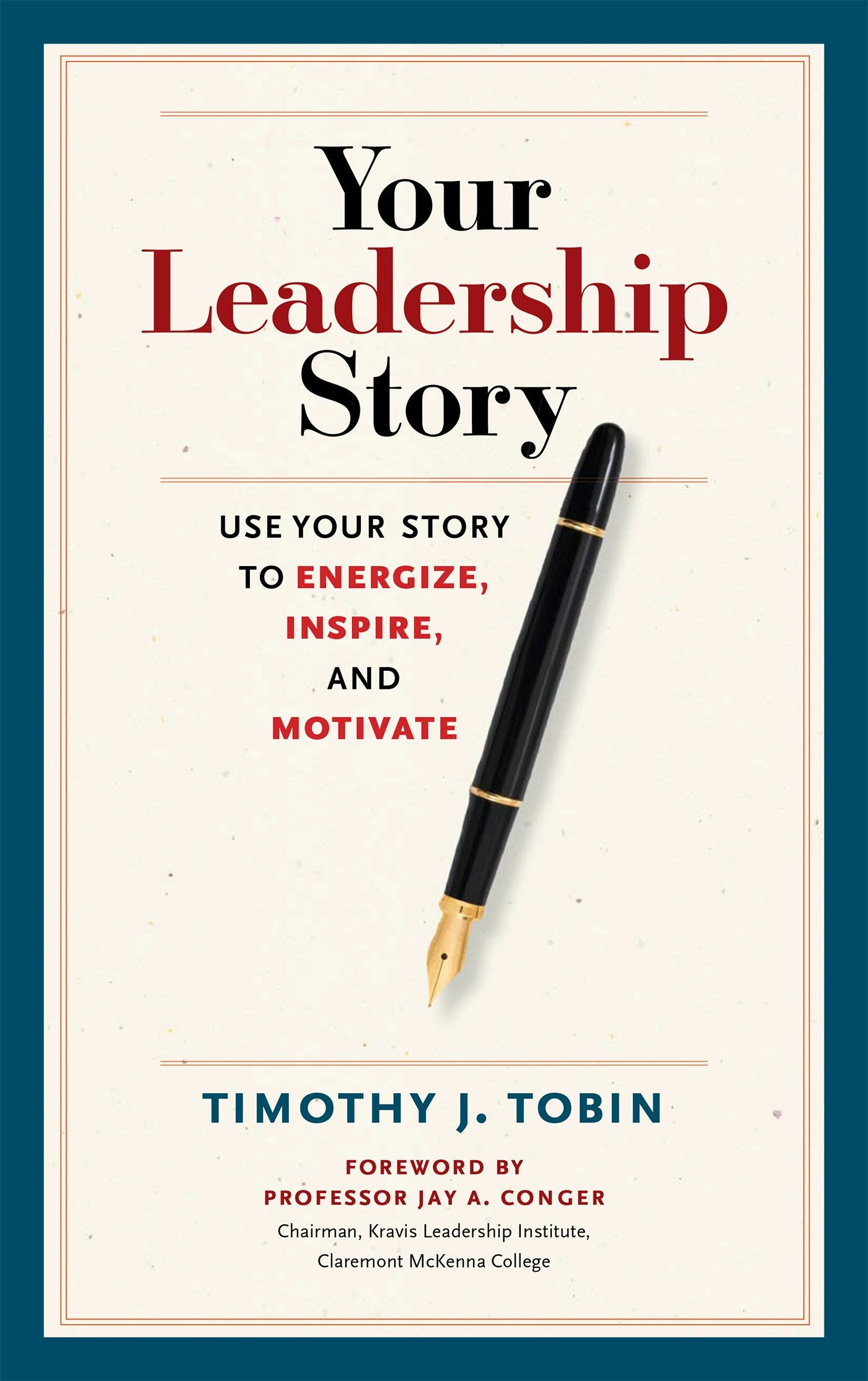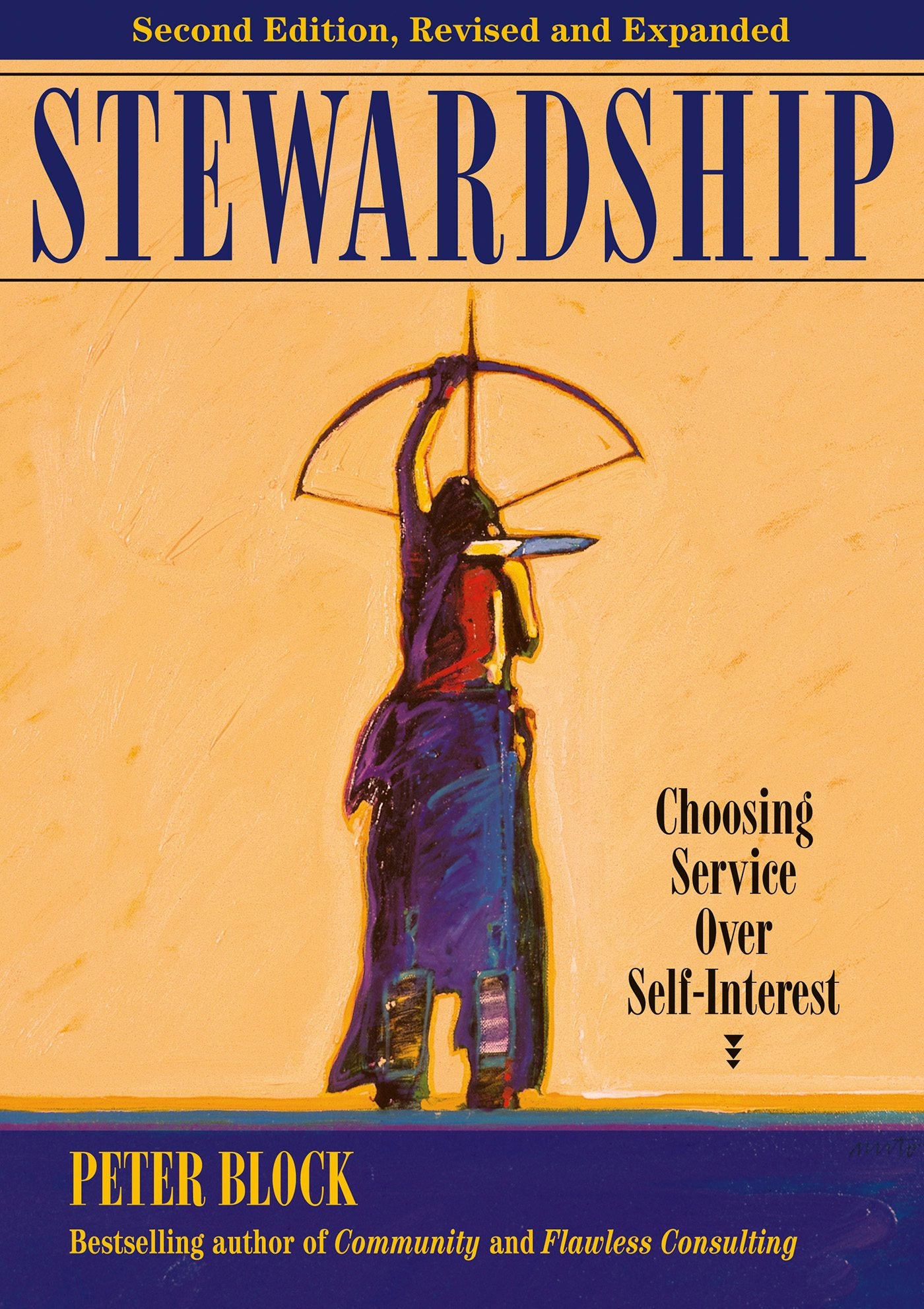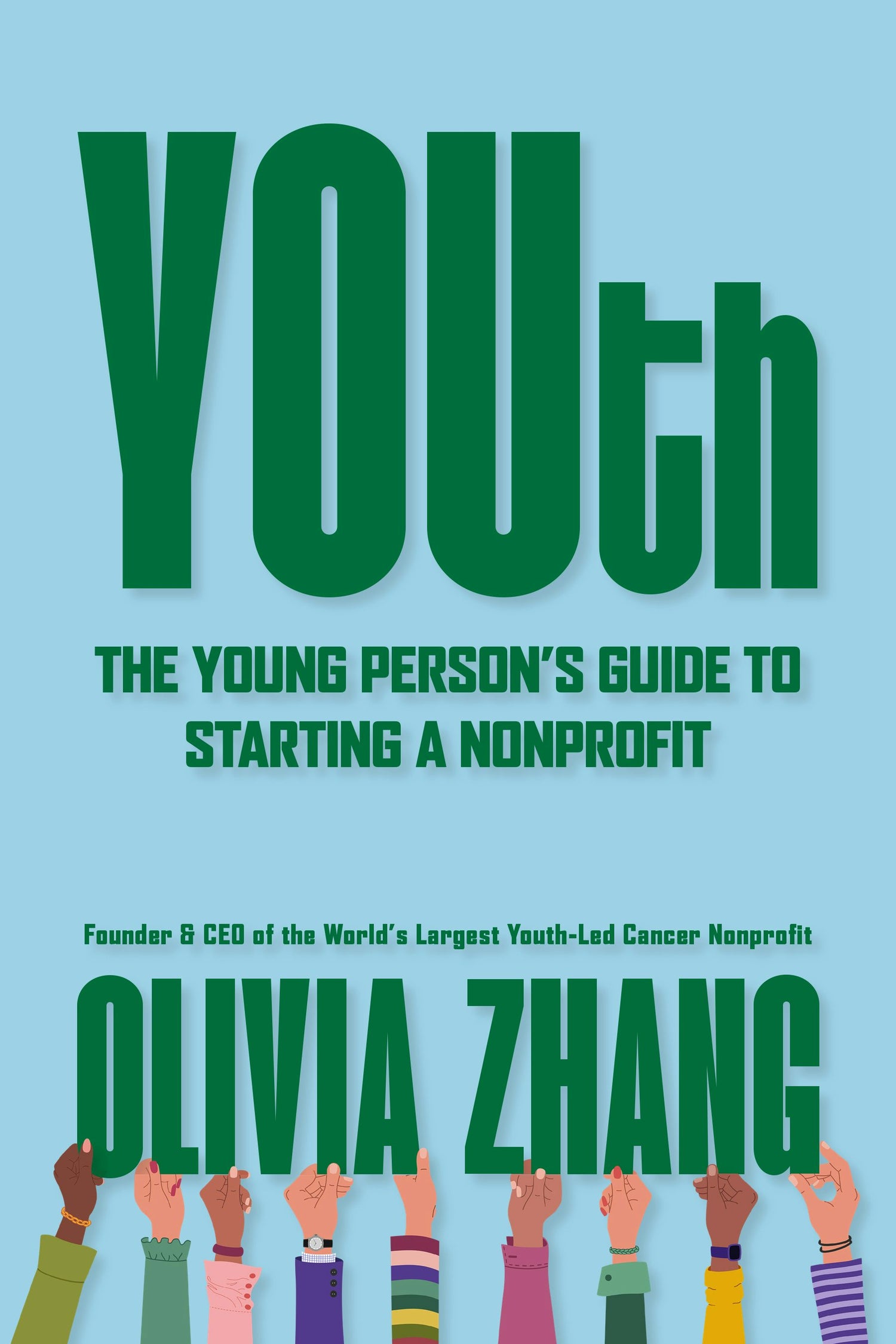Sort by:
Leaders all have stories-the events, perspectives, and behaviors that constitute who they are-but few are aware of what that story is or what is says about them. Leadership development expert Tim Tobin show how, by thinking of themselves as literally writing a story -with a plot, theme, characters, and an arc-leaders can take control of their story and become more effective, insightful, and inspiring.
Many new ways of changing organizations have become popular, replacing the old top-down change methods with methods that engage everyone in the organization. This is an extensively revised, updated, and expanded edition of one of the original and leading guides to the core principles that underlie all of these new change methods and make them successful. Over 25,000 of the original sold.
One of businesses greatest modern challenges is navigating the inevitable culture clashes that come with a global workplace. Michael Landers says the solution is deceptively simple: by becoming aware of your own culturally conditioned beliefs and practices, you can more easily recognize and adapt to those other cultures.
In an era when people and money are flowing fast across international boundaries, physically and virtually, culture crashes have become increasingly frequent, says international business consultant Michael Landers. A culture crash is what happens when someone unwittingly offends, frustrates or mystifies a person from a different culture. This can lead to lost business, hurt feelings, damaged relationships, even international incidents, as when Bill Gates shook his South Korean host with one hand when he was supposed to use two (very disrespectful).
So are culture crashes inevitable? No! All cultures fall into certain broad categories, and if you can figure out what kind of culture you're dealing with you can avoid committing a major faux pas. Landers first helps you become aware of your own culturally conditioned behaviors, perceptions and values, which seem so “normal” you don't even notice them (kind of like thinking you're not the one with an accent). Then he shows you how to figure out where a culture lies along continuums like individualistic vs. collectivist, direct vs. indirect, punctual vs. relaxed, and formal vs. informal. Filled with dozens of instructive and entertaining stories, this book will point you in the right direction as you navigate through the new global era.
In an era when people and money are flowing fast across international boundaries, physically and virtually, culture crashes have become increasingly frequent, says international business consultant Michael Landers. A culture crash is what happens when someone unwittingly offends, frustrates or mystifies a person from a different culture. This can lead to lost business, hurt feelings, damaged relationships, even international incidents, as when Bill Gates shook his South Korean host with one hand when he was supposed to use two (very disrespectful).
So are culture crashes inevitable? No! All cultures fall into certain broad categories, and if you can figure out what kind of culture you're dealing with you can avoid committing a major faux pas. Landers first helps you become aware of your own culturally conditioned behaviors, perceptions and values, which seem so “normal” you don't even notice them (kind of like thinking you're not the one with an accent). Then he shows you how to figure out where a culture lies along continuums like individualistic vs. collectivist, direct vs. indirect, punctual vs. relaxed, and formal vs. informal. Filled with dozens of instructive and entertaining stories, this book will point you in the right direction as you navigate through the new global era.
This essential guidebook, which shows young changemakers how to build successful nonprofits from scratch, comes from the teenage founder of Cancer Kids First, the world’s largest youth-led cancer nonprofit. It features step-by-step worksheets, checklists, and actionable exercises.
Young people are driving social change like never before, but many passionate activists lack the roadmap to turn their ideas into sustainable organizations. Olivia Zhang, who founded Cancer Kids First at age fourteen after losing two loved ones to cancer, delivers the comprehensive nonprofit guide she wishes she’d had when first starting out.
Now a Harvard student and recipient of the Diana Legacy Award, Zhang shares her journey of growing Cancer Kids First to reach over 10,000 patients across twenty-two countries.
Readers will get from Zhang the following:
Young people are driving social change like never before, but many passionate activists lack the roadmap to turn their ideas into sustainable organizations. Olivia Zhang, who founded Cancer Kids First at age fourteen after losing two loved ones to cancer, delivers the comprehensive nonprofit guide she wishes she’d had when first starting out.
Now a Harvard student and recipient of the Diana Legacy Award, Zhang shares her journey of growing Cancer Kids First to reach over 10,000 patients across twenty-two countries.
Readers will get from Zhang the following:
- Step-by-step instructions on legal filing, branding, team-building, and fundraising
- Practical worksheets, checklists, and actionable exercises
- Gen Z–friendly format with emojis and approachable language
- Proven strategies from Zhang’s journey of scaling Cancer Kids First to twenty-two countries
This is the first book to provide a complete and detailed methodology for developing sound theory in applied disciplines, which are academic and professional fields that apply scientific knowledge to professional practice, such as management, nursing, psychology human resource development, and many more.
The latest offering from the bestselling duo of Bev Kaye and Sharon Jordan-Evans-who have sold over 800,000 copies of their previous titles in twenty-two languages-offers a radically simple idea: you can avoid having “exit” interviews when employees are leaving if you have “stay" interviews that will keep them.
Since 1999 Bev Kaye and Sharon Jordan-Evans have been teaching managers how to conduct stay interviews, a concept they originated. It seems so simple-just ask what would make your key employees stay. Yet most managers will admit they are not conducting stay interviews (and their bosses are not conducting them either!). Why? Because they're afraid of opening Pandora's box. They ask, “What if I ask my talented people what will keep them and they all say money or a promotion or a Tesla?” Good point. So the fear of being unable to deliver on someone's request gets in the way of having the most crucial dialogue of all.
This book highlights why stay interviews are important; it underscores the real costs of talent lost, both tangible and intangible. Kaye and Jordan-Evans teach managers to hold these conversations and to do so with joy-not dread. They equip them with an easy four-step process they can use when an employee tosses them a tough-to-deliver-on request. It works like magic. There is to date no stay interview guide designed for and written directly to managers; this will be the first.
Since 1999 Bev Kaye and Sharon Jordan-Evans have been teaching managers how to conduct stay interviews, a concept they originated. It seems so simple-just ask what would make your key employees stay. Yet most managers will admit they are not conducting stay interviews (and their bosses are not conducting them either!). Why? Because they're afraid of opening Pandora's box. They ask, “What if I ask my talented people what will keep them and they all say money or a promotion or a Tesla?” Good point. So the fear of being unable to deliver on someone's request gets in the way of having the most crucial dialogue of all.
This book highlights why stay interviews are important; it underscores the real costs of talent lost, both tangible and intangible. Kaye and Jordan-Evans teach managers to hold these conversations and to do so with joy-not dread. They equip them with an easy four-step process they can use when an employee tosses them a tough-to-deliver-on request. It works like magic. There is to date no stay interview guide designed for and written directly to managers; this will be the first.
The new edition of the bestselling, acclaimed, and influential guide to applying the new science to organizations and management. In this new edition, Margaret Wheatley describes how the new science radically alters our understanding of the world and how it can teach us to live and work well together in these chaotic times.
Veteran project manager and University of California professor Zachary Wong identifies the eight most common people problems in managing projects and offers a flexible, customizable approach to solving them, based on a lifetime of research.
Being a team leader is a demanding job that is expected to get even more demanding in the coming years. You're expected to be part parent, part referee, part coach, part manager and part frustrated. And today's workforce is more diverse, more knowledgeable, more complex and more dynamic than ever before. So where are the new tools for this ever-more complex job? Drawing on decades of experience as a senior manager at Chevron, a management consultant, and an “Honored Instructor” at U.C. Berkeley, Zachary Wong identifies the top eight people skills that project team leaders need. To master these skills he Wong doesn't prescribe specific habits or behaviors. Instead, he gives team leaders a tool or model to help them see and diagnose people problems more clearly and then offers different options and ideas to help them decide which actions best fit their situation and who they are-he empowers team leaders rather than constrains them. This book takes a uniquely flexible approach to the always-vexing problem of getting the best contributions from the people on your team.
Being a team leader is a demanding job that is expected to get even more demanding in the coming years. You're expected to be part parent, part referee, part coach, part manager and part frustrated. And today's workforce is more diverse, more knowledgeable, more complex and more dynamic than ever before. So where are the new tools for this ever-more complex job? Drawing on decades of experience as a senior manager at Chevron, a management consultant, and an “Honored Instructor” at U.C. Berkeley, Zachary Wong identifies the top eight people skills that project team leaders need. To master these skills he Wong doesn't prescribe specific habits or behaviors. Instead, he gives team leaders a tool or model to help them see and diagnose people problems more clearly and then offers different options and ideas to help them decide which actions best fit their situation and who they are-he empowers team leaders rather than constrains them. This book takes a uniquely flexible approach to the always-vexing problem of getting the best contributions from the people on your team.
The workbook version of this international bestseller guides you through getting more of the important things done. You'll stop procrastinating and start eating those frogs in no time!
The workbook follows the same twenty-one-chapter format as the book. Each chapter includes four exercises with space to do the exercises on the pages. The workbook will also include a narrative character who is struggling with procrastination in her work and home lives and uses the recommendations from Eat That Frog! to improve her time management performance.
The workbook follows the same twenty-one-chapter format as the book. Each chapter includes four exercises with space to do the exercises on the pages. The workbook will also include a narrative character who is struggling with procrastination in her work and home lives and uses the recommendations from Eat That Frog! to improve her time management performance.
Laura Stack, aka The Productivity Pro®, offers an up-to-date guide packed with advice to help busy executives make sure they are both efficient and effective
Inspired by Peter Drucker's classic The Effective Executive, Laura Stack offers a productivity bible for the 21st century. She focuses on time management strategies today's executives can use to quickly obtain profitable, productive results by managing the intersection between two critical values: effectiveness and efficiency.
Effectiveness, Stack says, is identifying and achieving the best objectives for your organization-doing the right things. Efficiency is accomplishing them with the least time, effort, and cost possible-doing things right. If you're not clear on both, you're wasting your time. As Drucker put it, “There is nothing so useless as doing efficiently that which should not be done at all.”
Stack identifies twelve practices that will enable executives to be effective and efficient, grouped in three broad areas: strategy, teamwork, and tactics. For each practice she offers tips, techniques, and advice based on her work with individuals and organizations all over the world. There are dozens and dozens of great ideas here for making your organization, your team, and yourself vastly more productive.
Inspired by Peter Drucker's classic The Effective Executive, Laura Stack offers a productivity bible for the 21st century. She focuses on time management strategies today's executives can use to quickly obtain profitable, productive results by managing the intersection between two critical values: effectiveness and efficiency.
Effectiveness, Stack says, is identifying and achieving the best objectives for your organization-doing the right things. Efficiency is accomplishing them with the least time, effort, and cost possible-doing things right. If you're not clear on both, you're wasting your time. As Drucker put it, “There is nothing so useless as doing efficiently that which should not be done at all.”
Stack identifies twelve practices that will enable executives to be effective and efficient, grouped in three broad areas: strategy, teamwork, and tactics. For each practice she offers tips, techniques, and advice based on her work with individuals and organizations all over the world. There are dozens and dozens of great ideas here for making your organization, your team, and yourself vastly more productive.
Helping others is one of the most universal things that people do every day in their work and lives. Yet often this help is not helpful or is resented or refused. In this seminal book, a preeminent author and scholar analyzes the dynamics of helping relationships and shows how to provide help that is really helpful.


















